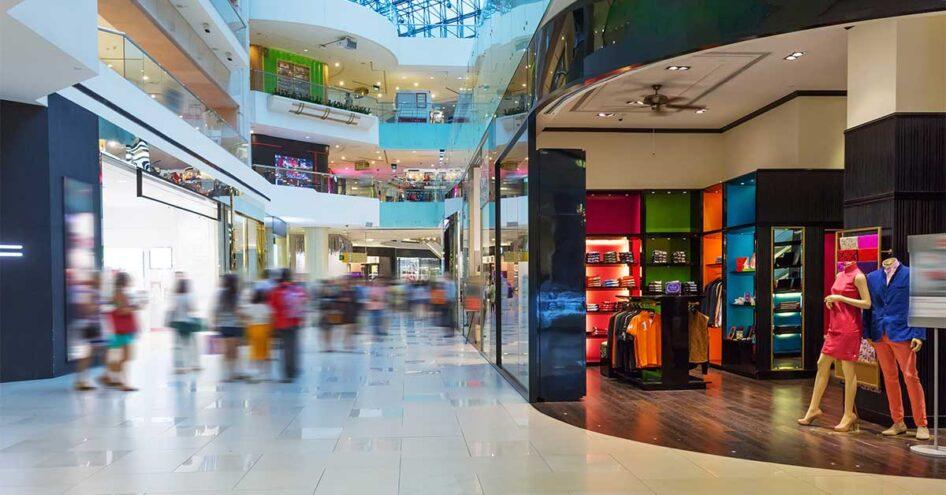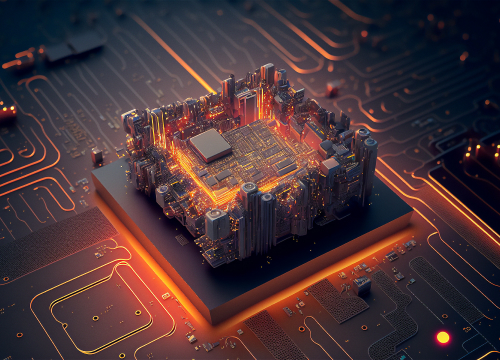State-of-the-art technologies are revolutionizing our life and the application of the IoT in retail and ecommerce is an object lesson in this rapid and ubiquitous spread of IT know-how throughout an ever-widening range of industries. While being quite a recent development, the Internet of Things has nevertheless become surrounded by a plethora of myths the most persistent of which is that the chief domain where IoT solutions are utilized is our lodgings.
Having delivered quite a number of IoT projects, we at Sirin Software know that this technology is no longer a domestic pet that issues orders to home appliances and systems without human intervention, making our residence a comfortable place to live in. Today, IoT solutions have left our premises to turn the urban environment into smart cities and are increasingly employed almost everywhere – from transportation and agriculture to healthcare and industrial automation.
Among human activities that are undergoing the most drastic IoT-powered changes, shopping is one of the trailblazers where IoT-based ecommerce and retail technologies are predicted to display a spectacular CAGR of 26% within the next 7 years. Developers of IoT solutions in retail and ecommerce are going all lengths to let consumers enjoy all amenities contemporary digitalization offers. How can IoT in retail and ecommerce benefit shoppers and vendors?
Internet of Things in the Retail and Ecommerce Industries: Use Cases Scrutinized
IoT in ecommerce and retail can find a ready application at all stages of the sales pipeline, streamlining the workflow with IoT-based ecommerce and retail solutions and devices.
IoT in Retail and Ecommerce Logistics
Selling things presupposes their transportation from the manufacturer/supplier to the place where the consumer can buy them. This process can be made more efficient by turning it into smart logistics. What makes it smart? The ability to monitor the delivery in real-time via GPS trackers and RFID (radio frequency identification) tags. Moreover, when freight vehicles are equipped with specialized detectors and ambient conditions sensors, IoT-based ecommerce and retail technologies will see to the compliance of delivery mode to the usability requirements for the merchandise in question.
Such application of IoT in ecommerce and retail provides:
- Robust supply chain management that keeps outlets and warehouses well stocked regardless of the weather and traffic issues that can otherwise interfere.
- Avoidance of goods being spoiled en route through the ability to preserving optimal conditions, guaranteeing long shelf life of the delivered products (especially foodstuffs).
- Greater customer satisfaction since buyers are kept updated through mobile apps or push notifications on the journey of the item they ordered in real-time until it reaches their front door.
Further sophistication of the Internet of Things in the retail and ecommerce sector will yield the comprehensive advent of autonomous cars that will exclude a negative impact of the human factor on the speed and accuracy of delivery services.
IoT in Ecommerce and Retail Warehouses
IoT-based ecommerce and retail solutions that empower sensors and RFID tags are highly instrumental in intelligent inventory management, controlling products that enter and leave the premises and monitoring storage conditions. Breakthrough innovation of warehouse application of the IoT in ecommerce and retail is smart shelves. They signal the personnel when items on them are running short and even dispatch automatic orders to replenish the stock thus becoming effective IoT solutions in retail and ecommerce used for predictive maintenance and harbingers of warehouse robotization.
IoT in Retail Stores
The Internet of Things in the retail outlets can be used much more like in warehouses, yet here IoT solutions can be leveraged with a wider scope of purposes. Their major application in stores is focused on getting insights into customer behavior.
Which departments are frequented by shoppers and which do they avoid? Where do people spend most of their time in the store? What offers do they pay attention to? These questions can be answered with the help of IoT devices strewn all over the premises. Plus, data collected in this way sheds light upon the clients’ demographics and their buying habits.
The future of IoT employment in stores lies in the introduction of automatic shopping when people just take the items they need and leave the shop while cameras and sensors watching them send signals to their smartphones and debit the price of products from their accounts.
Conclusion
Modern IT solutions are called to remarkably facilitate the workflow and enhance customer satisfaction in any industry, and trade is no exception. Sirin Software can accomplish projects of any complexity related to the IoT in retail and ecommerce, delivering high-quality results at an affordable price.





